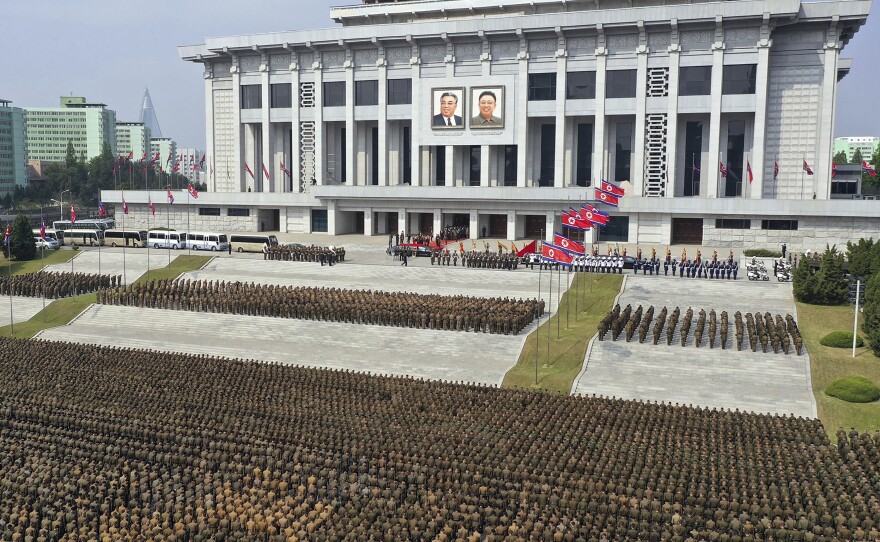SEOUL, South Korea — A large number of North Koreans including leader Kim Jong Un attended a funeral for a top official, state media reported Monday, as the country maintained the much-disputed claim that its suspected coronavirus outbreak is subsiding.
Since admitting earlier this month to an outbreak of the omicron variant, North Korea has only stated how many people have fevers daily, and has only identified a few of the cases as COVID-19. Its state media said Monday that 2.8 million people have fallen ill due to an unidentified fever but only 68 of them died since late April, an extremely low fatality rate if the illness is COVID-19 as suspected.
North Korea has limited testing capability for that many sick people, but some experts say it is also likely underreporting mortalities to protect Kim from political damage.
The official Korean Central News Agency said Kim attended the funeral Sunday of Hyon Chol Hae, a Korean People's Army marshal who reportedly played a key role in grooming him as the country's next leader before Kim's father died in late 2011.
State media photos showed a bare-faced Kim carrying Hyon's coffin with other men wearing masks before he threw earth to his grave at the national cemetery. They showed many soldiers clad in olive-green uniforms saluting while other officials dressed in dark suits stood at attention. KCNA said "a great many" soldiers and citizens earlier turned out along streets to express their condolences when Hyon's coffin was moved to the cemetery.
North Korea maintains a nationwide lockdown and other stringent rules to curb the virus outbreak. Region-to-region movement is banned, but key agricultural, economic and other industrial activities were continuing in an apparent effort to minimize harm to the country's already moribund economy.
KCNA said Monday that 167,650 new fever cases had been detected in the past 24-hour period, a notable drop from the peak of about 390,000 reported about one week ago. It said one more person died and that the fever's fatality rate was 0.002%.

"All the people of (North Korea) maintain the current favorable turn in the anti-epidemic campaign with maximum awareness, in response to the call of the party central committee for defending their precious life and future with confidence in sure victory and redoubled great efforts," KCNA said.
Experts question the the true toll, given North Korea's 26 million people are mostly unvaccinated and about 40% are reportedly undernourished. The public health care system is almost broken and chronically short of medicine and supplies. In South Korea, where most of its 52 million people are fully vaccinated, the fatality rate of COVID-19 was 0.13% as of Monday.
South Korea's spy agency told lawmakers last week that some of the fever cases tallied by North Korea include people suffering from other illnesses like measles, typhoid and pertussis. But some civilian experts believe most of the cases were COVID-19.
Before admitting to the omicron outbreak on May 12, North Korea had insisted it was virus-free throughout the pandemic. It snubbed millions of vaccines offered by the U.N.-backed COVAX distribution program and has not responded to offers of medicine and other aid from South Korea and the United States.
The World Health Organization has also pleaded for more information on the outbreak but not gotten a response.
Some observers say North Korea would only receive assistance from China, its last major ally, because Western aid shipments could hurt Kim's leadership as he's repeatedly called for "a self-reliance" to fight against U.S.-led pressure campaigns.
Copyright 2022 NPR. To see more, visit https://www.npr.org. 9(MDAzMjM2NDYzMDEyMzc1Njk5NjAxNzY3OQ001))






